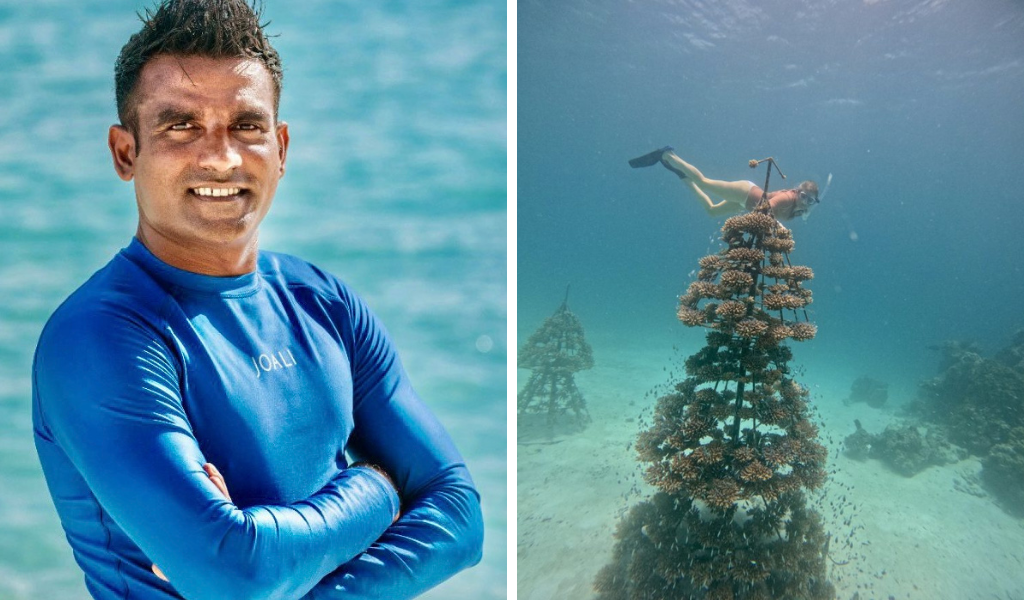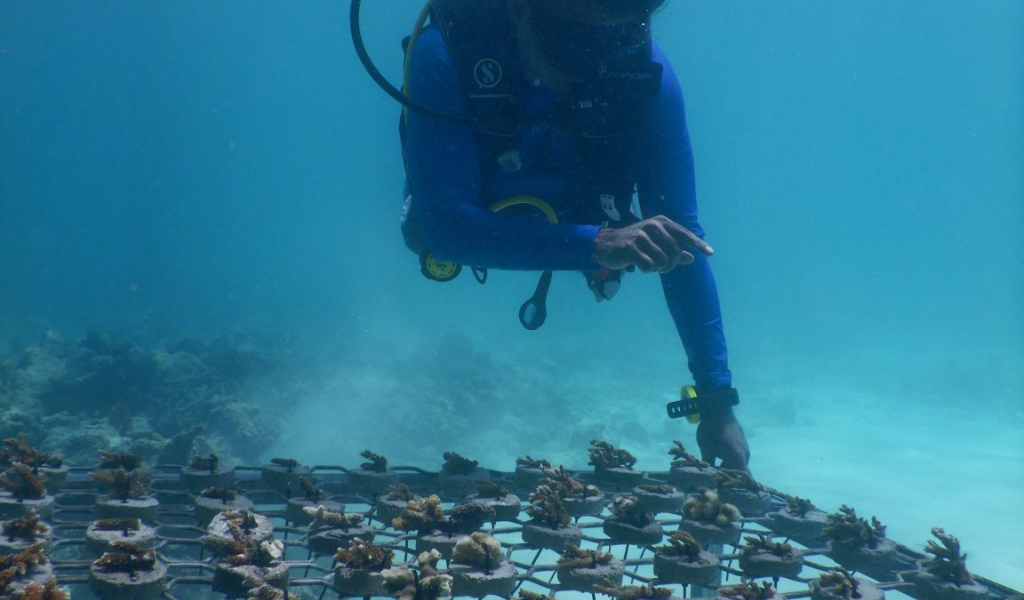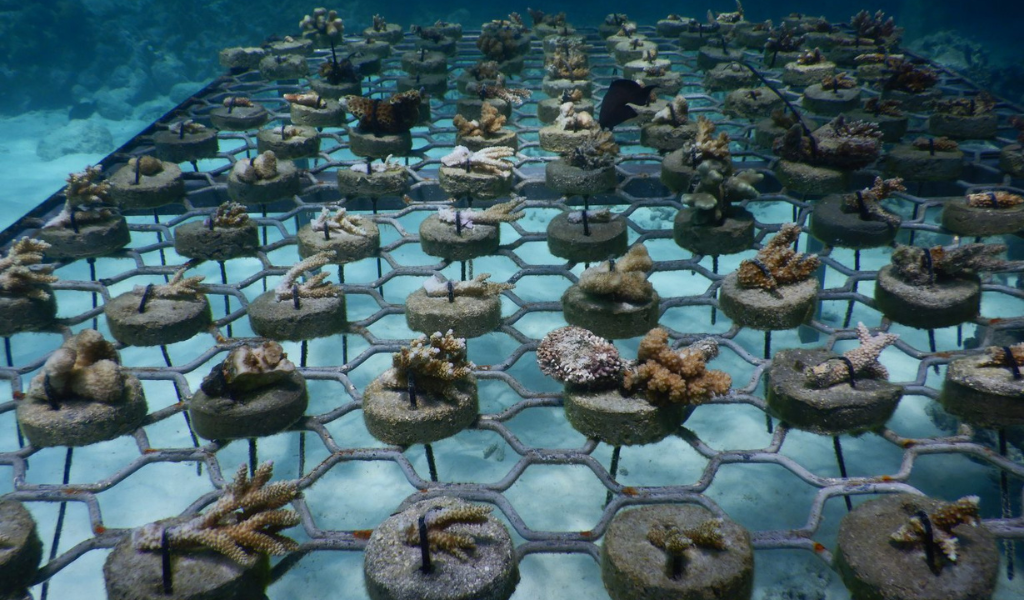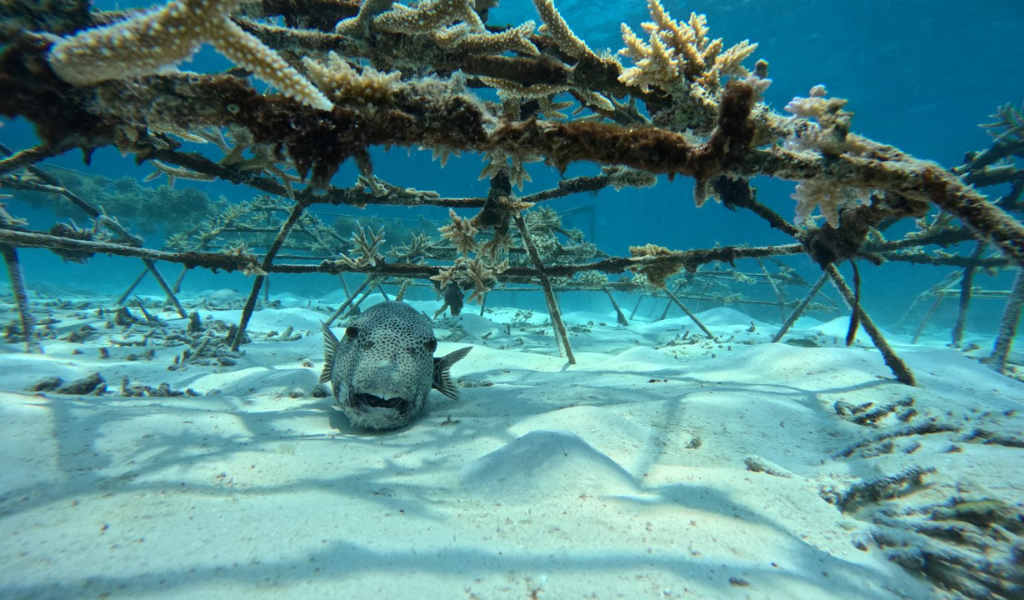

JOALI Maldives' Marine Biologist, Shameem Ali, Revolutionizes Coral Restoration Efforts
Monday 7th of August 2023
In the azure paradise of the Maldives, one man's passion for marine conservation is changing the game for coral reefs. Shameem Ali, Senior Marine Biologist at JOALI Maldives, is at the forefront of revolutionary efforts to protect and restore the delicate marine ecosystems that grace these breathtaking islands.
Starting his journey at Banyan Tree Vabbinfaru's marine lab, Shameem's dedication has elevated him to a leading role at JOALI Maldives, where he spearheads marine conservation through the JOALI Reef Restoration Programme (JRRP). This innovative endeavor underscores the resort's commitment to coral restoration and conservation in the Maldives.
Shameem's journey began with a deep affinity for the ocean's biodiversity. "The ocean's wonders have always captivated me," he says. "Being a marine biologist lets me blend my love for the environment with my scientific passion, a journey I'm immensely proud of."

Central to the JRRP is the concept of "fragments of hope" – small coral pieces nurtured in resort nurseries before being transplanted onto the existing house reef to promote regeneration. This groundbreaking approach has yielded promising results, with 70 grown colonies already planted around the Arrival Centre since the initiative's launch in November 2022.
Shameem elaborates, "Our goal is to facilitate the natural recovery of our island's surrounding reef by nurturing these coral fragments in our nurseries. We've devised a unique system, employing Mineral Accretion Technology (MAT) to enhance coral growth. By using a low-voltage current, we accelerate the accumulation of calcium carbonate – the mineral forming corals' skeletal structure – promoting faster growth."
The MAT nursery hosts up to 113 fragments on each of its 24 tables, yielding over 2,700 fragments yearly. After 10-12 months, these coral fragments are ready for transplantation onto the house reef.
Beyond the MAT nursery, JOALI Maldives features spider frame and Christmas tree nurseries where guests actively participate in planting, fostering awareness and a sense of responsibility for reef health. In 2022, guests helped create nine additional spider frames with 310 coral fragments.

"Guest involvement is vital," Shameem emphasizes. "By engaging them in the planting process, we not only raise awareness about coral restoration but also cultivate a commitment to reef health."
Despite challenges, like initial coral bleaching due to adjustment and shallow waters, the JRRP team adapted, moving frames to slightly deeper waters for success.
Shameem's dedication to coral restoration is transforming the Maldives' marine landscape. As the country's first and only Maldivian senior marine biologist, he is an inspiration and a testament to the potential of passion and perseverance.
Shameem asserts, "Each of us plays a role in safeguarding oceans and their diverse life. Through the JOALI Reef Restoration Programme, we restore our island's reef and inspire action for environmental change."

As the JRRP advances, Shameem and his team explore new techniques and technologies. Focused on innovation and collaboration, the JRRP is on track to become a model for marine conservation in and beyond the Maldives.
"Working in marine biology is thrilling," says Shameem. "We uncover methods to understand and safeguard oceans better. We constantly seek improvements, sharing insights with others."
Beyond expanding nurseries and outplanting, Shameem's team develops educational programs for communities and schools, aiming to cultivate lifelong marine conservation passion.
"Education is crucial," Shameem says. "Teaching youth about coral reefs and their challenges fosters stewardship. Our goal is to inspire change throughout the Maldives and beyond."
Shameem's dedication to coral restoration radiates hope for the Maldives' marine future. His pioneering work echoes beyond JOALI Maldives, inspiring countless individuals to champion a sustainable underwater world.
"As we collaborate and innovate," Shameem affirms, "we ensure future generations savor the wonder of our planet's most precious resource – the ocean."